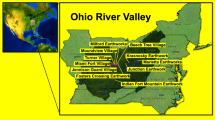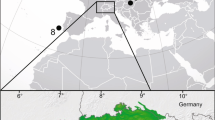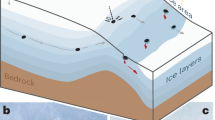Abstract
WHILE reading through Dr. F. A. Lindemann's defence of Lord Kelvin's estimate of the age of the earth, I was reminded that in spite of the sympathetic spirit in which he always entered into any discussion, he would never allow the least doubt to be thrown on the correctness of his estimate of the earth's age. Yet it is open to several objections: he assumed that the solidified crust, as it was being formed, would sink toward the centre of the earth until it was solid throughout, whereas there can be no doubt about its core being so heavy that the crust material could not possibly sink. He also assumed a diminishing rate of cooling, whereas the greater portion of the earth's surface is covered by water the bottom temperature of which must have been practically constant for millions of years. He also cuts down the temperature in the earth's centre from 410,000° F., which it would be according to his assumption, to 7000° F.; whereby the available heat is reduced enormously. However, if radio-active processes can supply the earth's radiation losses there is no need to deal with the older question.
This is a preview of subscription content, access via your institution
Access options
Subscribe to this journal
Receive 51 print issues and online access
$199.00 per year
only $3.90 per issue
Buy this article
- Purchase on Springer Link
- Instant access to full article PDF
Prices may be subject to local taxes which are calculated during checkout
Similar content being viewed by others
Author information
Authors and Affiliations
Rights and permissions
About this article
Cite this article
STROMEYER, G. The Age of the Earth. Nature 95, 259–260 (1915). https://doi.org/10.1038/095259c0
Issue Date:
DOI: https://doi.org/10.1038/095259c0
Comments
By submitting a comment you agree to abide by our Terms and Community Guidelines. If you find something abusive or that does not comply with our terms or guidelines please flag it as inappropriate.



